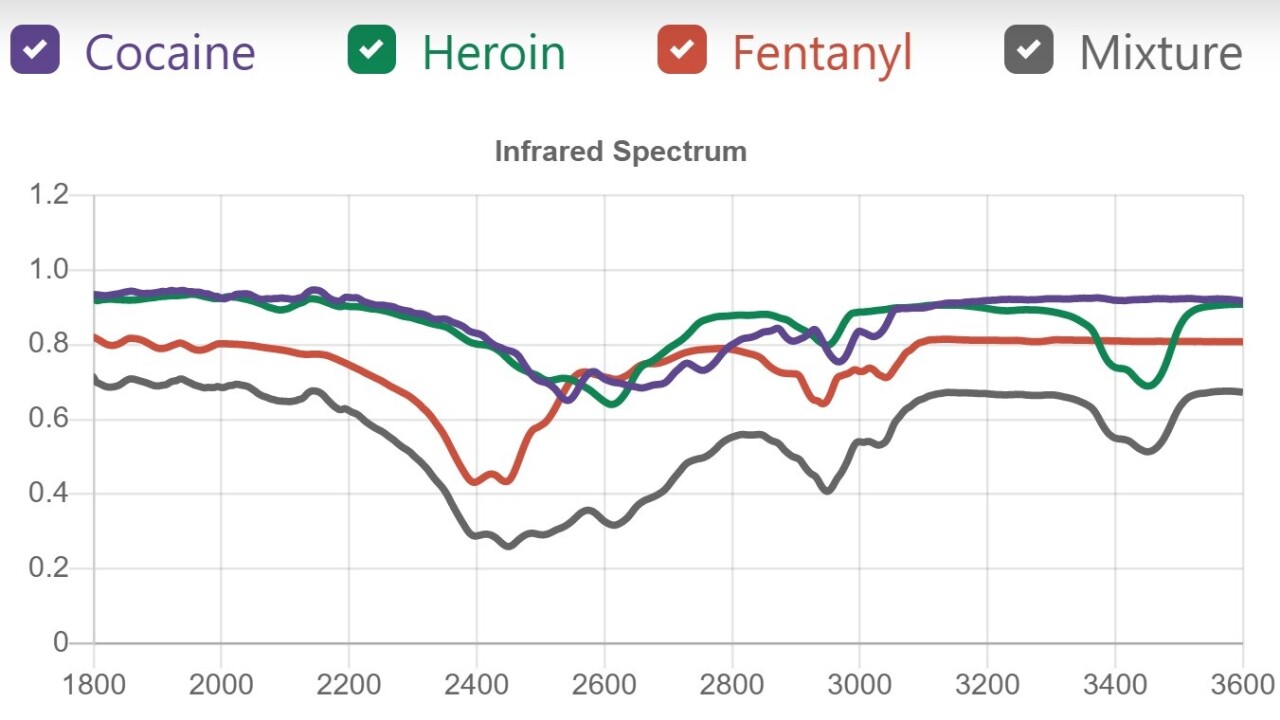A team of researchers from the University of Victoria have developed an AI system capable of determining the expected chemical makeup of drugs. While it involves supercomputers and a robust cocktail of cloud-based machine learning technologies, the ultimate goal is to make it dead-simple for just about anyone to tell what’s in their drugs.
Approximately 70,000 deaths from drug overdose are recorded annually in the US alone. While the causes are both myriad and systemic, a significant number of these tragedies could potentially be avoided if consumers knew what was in their drugs.
The issue relates to those who take both ‘legal’ prescription drugs under the care and advisement of properly-licensed medical professional and those who abuse prescription drugs or use so-called ‘street’ drugs.
[Read next: Meet the 4 scale-ups using data to save the planet]
According to a report from Ken Strandberg in Technology Networks’ Informatics, the project came about to address concerns over things such as fentanyl levels in opioids and inconsistencies in the unregulated prescription drug markets.
When most laypersons think about drug testing, they’re probably imagining something like a urine sample or a hair test. But drug ‘checking’ is used to determine what’s in a drug itself. Typically, we have to take a drug maker at their word. When big pharma tells us what’s in our pills, we pretty much have to believe it.
And the same goes for the so-called ‘street’ drug market. Without a laboratory and some dedicated equipment it’s virtually impossible for someone to determine what’s actually in the molly, MDMA, or other drugs people are taking.
The big idea here is to ultimately develop a system for medical professionals – such as pharmacists – to quickly and accurately determine what’s actually in the drugs they issue. But the scientists also want to see their work made available to the general public.
Strandberg’s piece quotes Dennis Hore, a member of the University of Victoria team:
A recently funded project seeks to build an interactive kiosk, where people can bring their samples for analysis, and the computer provides guidance based on science, without gender or race bias or bias based on their answers to questions.
Dirty drugs, whether prescription or ‘street,’ are responsible for untold deaths. A system that can quickly and easily determine what’s in your drugs could be an incredible game-changer, but shrinking a laboratory down to kiosk size is no simple task.
Where normal drug analysis involves physical chemistry – with machines and beakers and so forth – the Victoria team’s system relies on a robust cocktail of AI, machine learning, and supercomputers to make ‘surface’ inferences. The reason for this is simple: we can’t put a glass beaker or a centrifuge on the internet, but we can use cloud compute to put supercomputer-based AI online.
Quick take: The researchers are using brute force here, and not just because the supercomputer they’re using (called Arbutus 2) has 1,000s of Intel Xeon processors. The AI powering the analysis uses a kitchen sink approach involving several different types of AI and ML paradigms. This, according to the team, makes it possible for the system to determine both known quantities and completely novel drug compounds.
In much the same way that laboratory testing helps to protect pharmacies and their patients from ‘bad batches’ and needle exchange programs help protect addicts from disease, this AI system could serve as a new, powerful form of protection for drug users.
Get the TNW newsletter
Get the most important tech news in your inbox each week.





